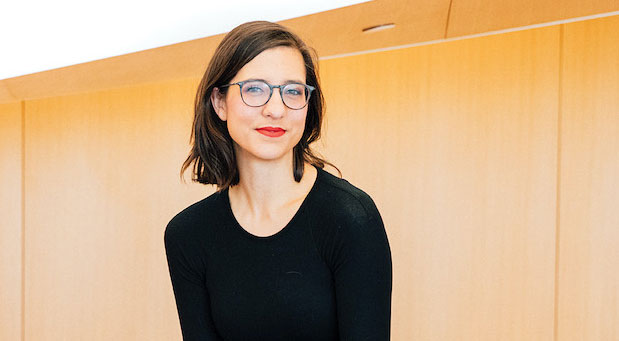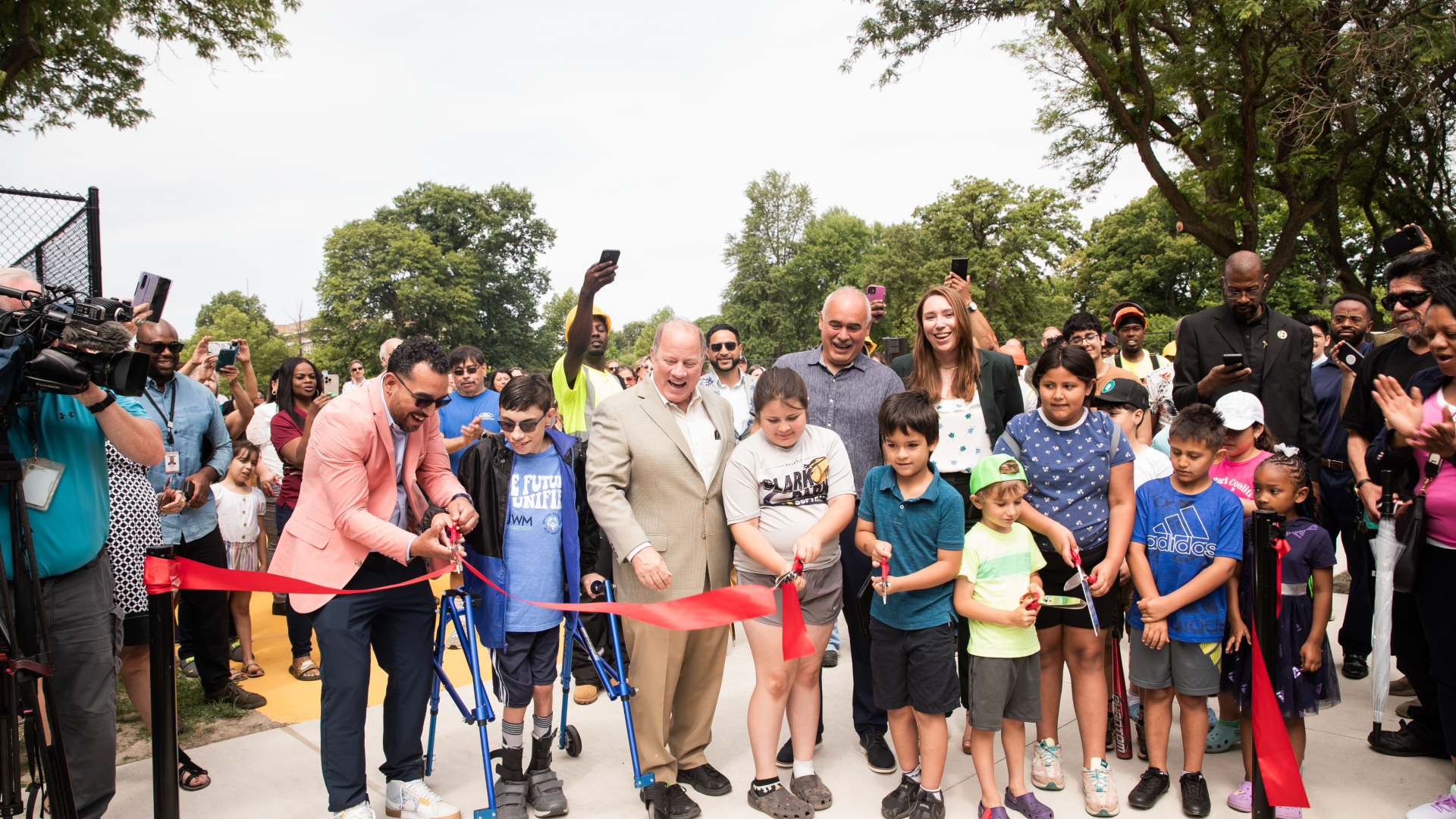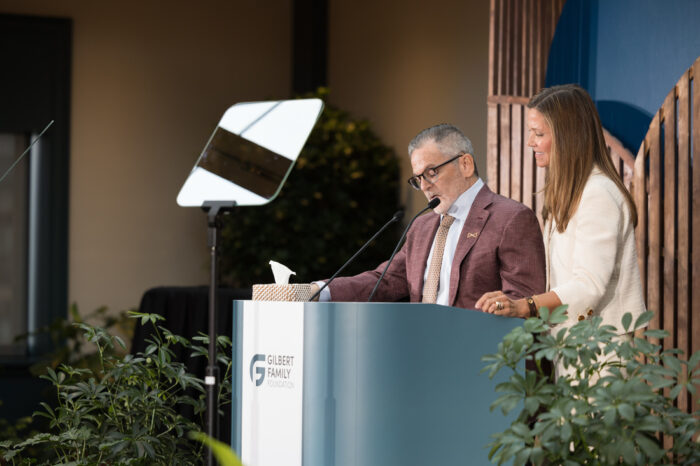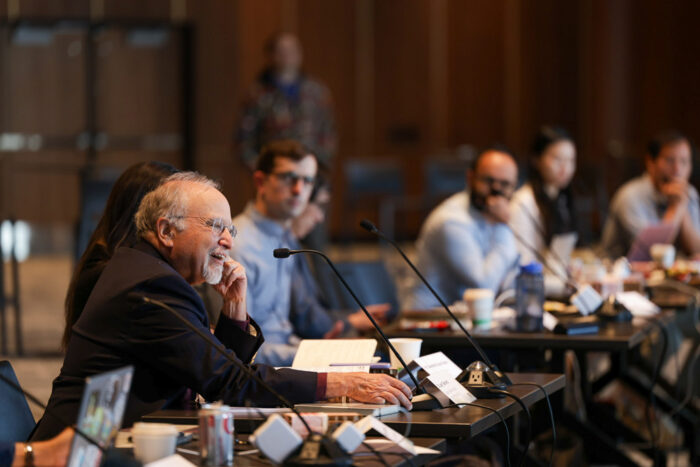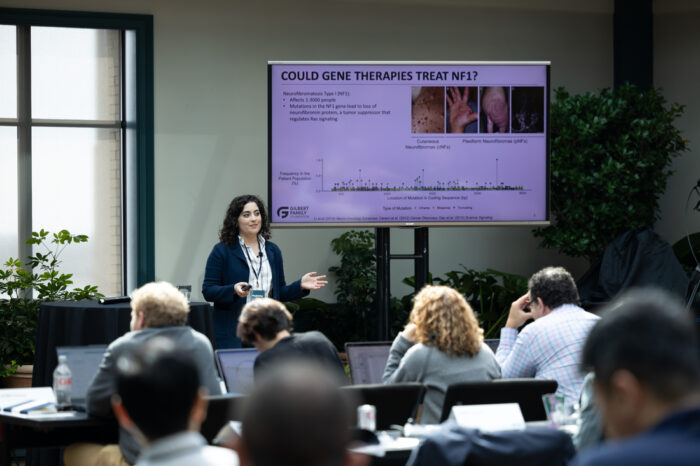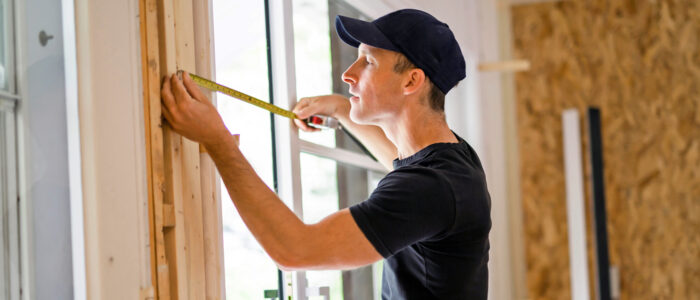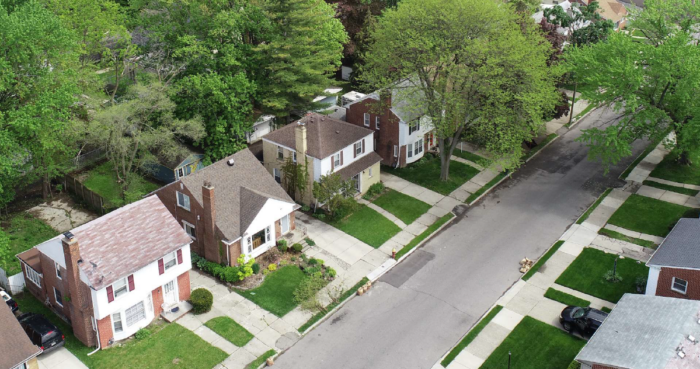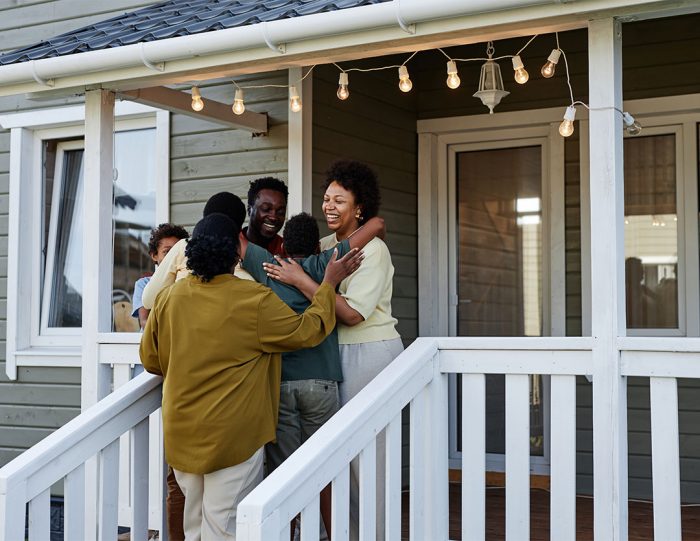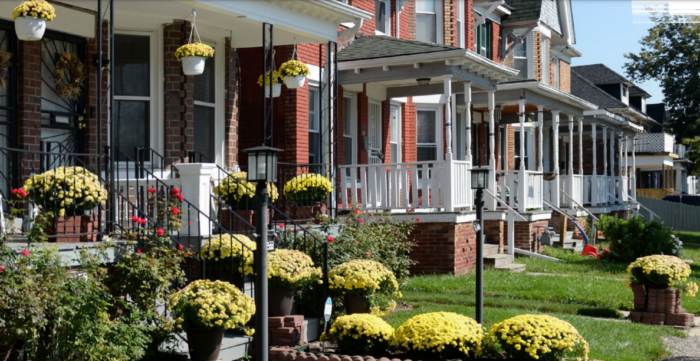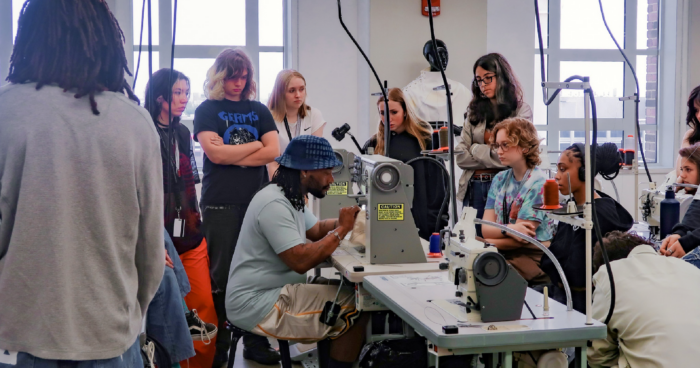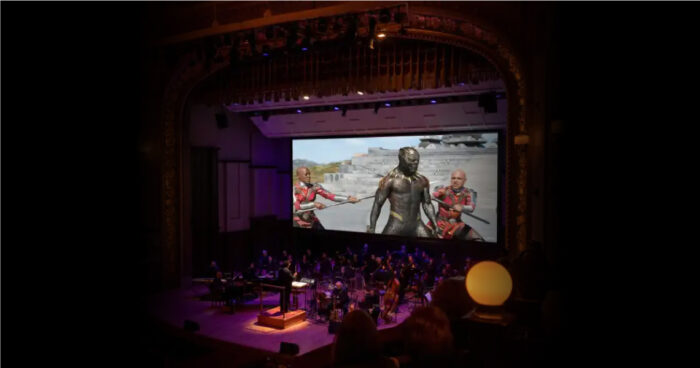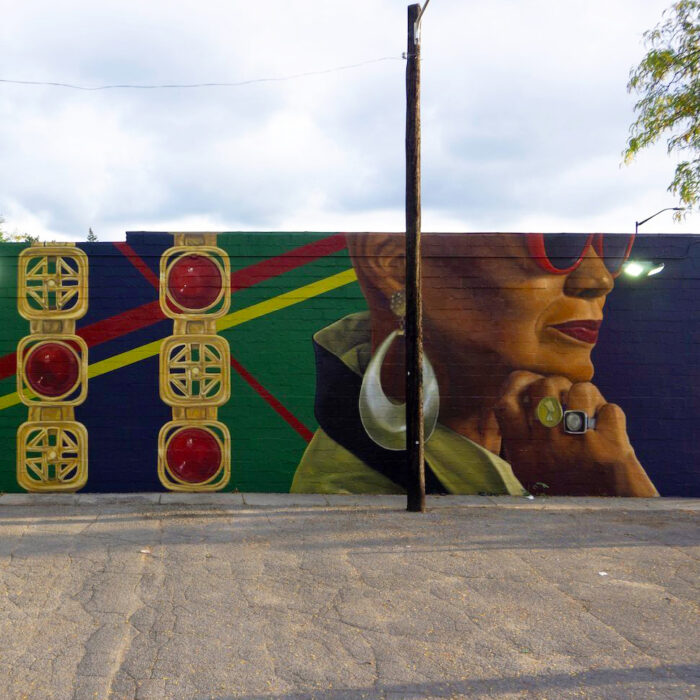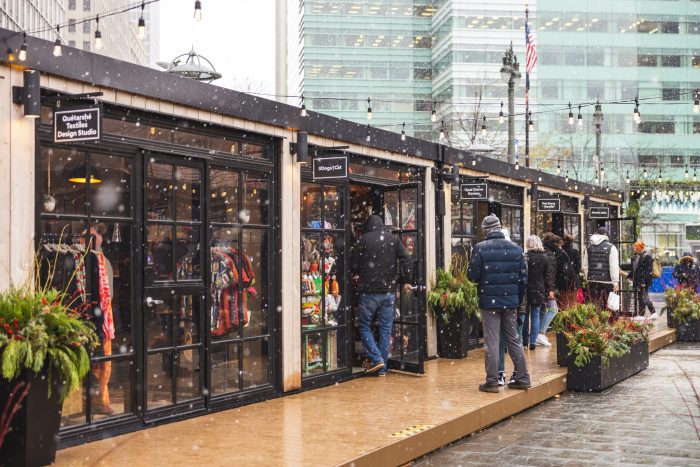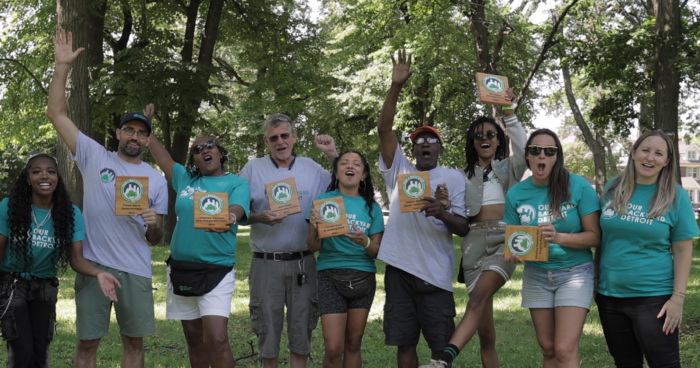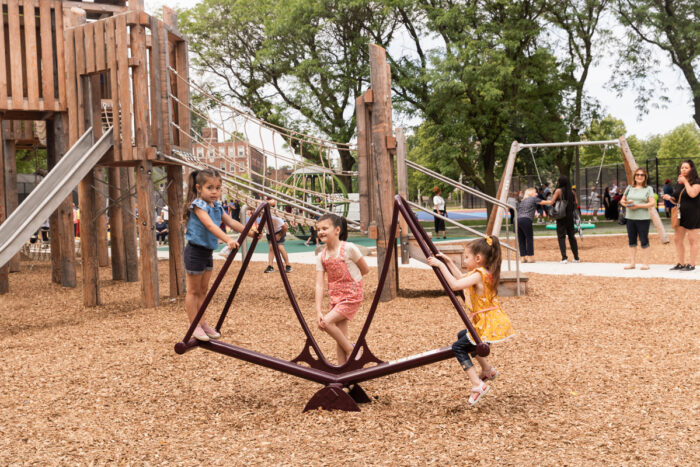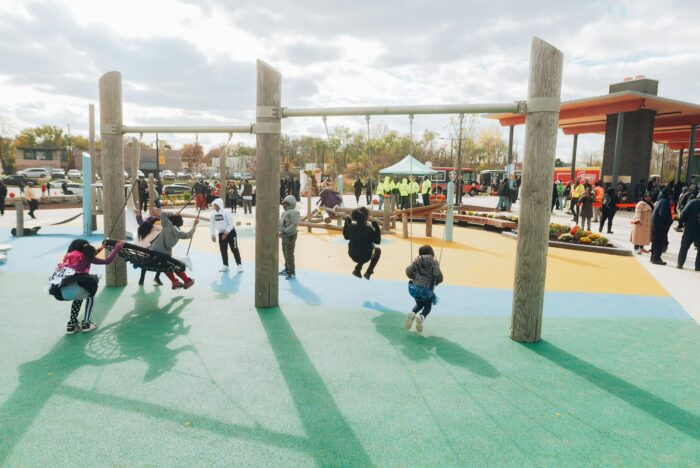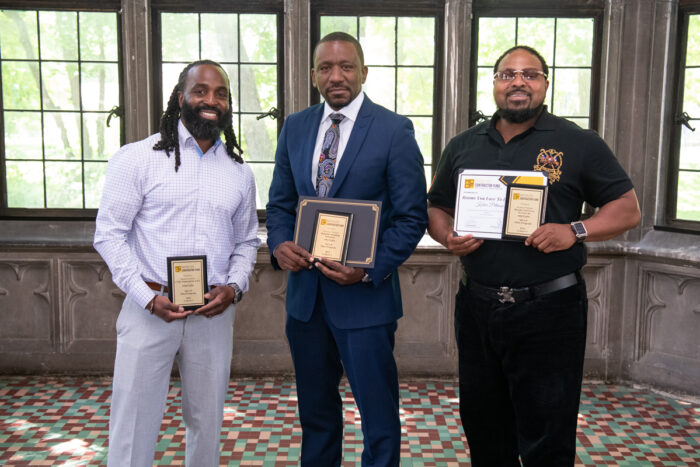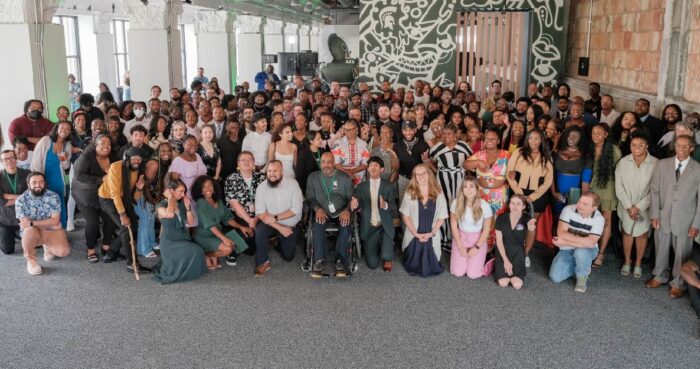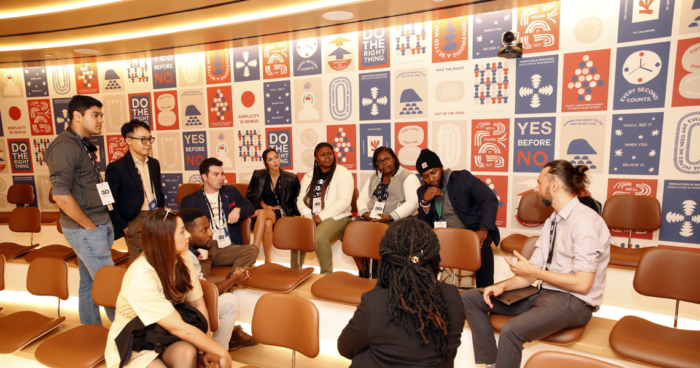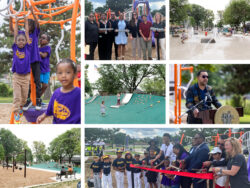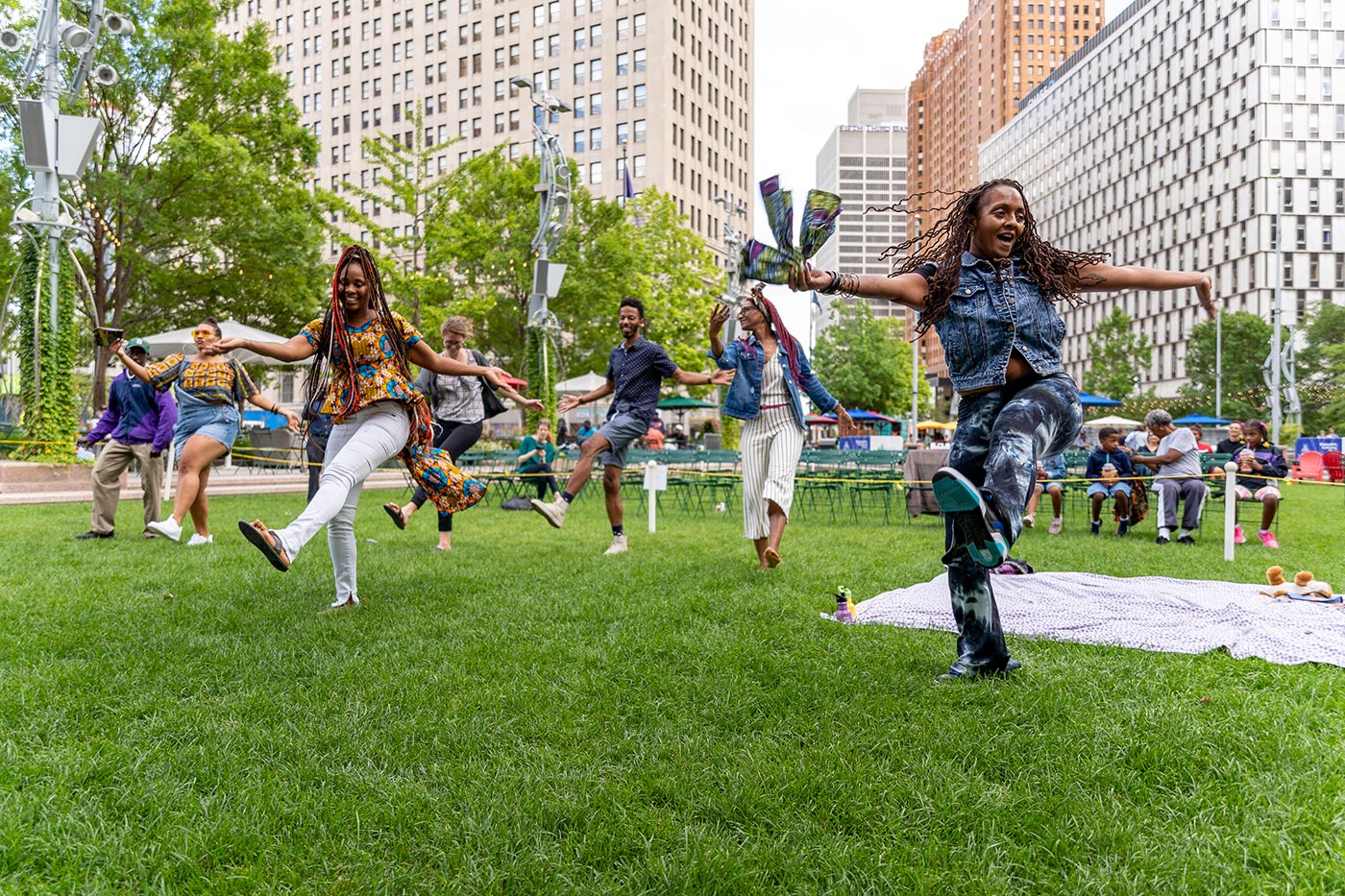Gilbert Family Foundation Brings Shirley Ryan AbilityLab to Detroit and Creates the Nick Gilbert Neurofibromatosis Research Institute
In September, Gilbert Family Foundation, Henry Ford Health and Shirley Ryan AbilityLab announced an historic partnership to bring a 72-bed state-of-the-art physical medicine and rehabilitation facility to Detroit. The facility will be managed by Shirley Ryan AbilityLab and will become part of Henry Ford Health’s campus expansion.
Gilbert Family Foundation also announced the creation of the Nick Gilbert Neurofibromatosis Research Institute, bringing a revolutionary neurofibromatosis research institute to Detroit in partnership with Henry Ford Health + Michigan State University Health Sciences. Both these partnerships will cement Detroit as a leader in innovative, personalized medical care and research.
The construction and operation of these two initiatives is expected to cost an estimated $439 million over 10 years. To bring the projects to life, the Gilbert Family Foundation agreed to contribute $374 million in grant funding.
At a press event celebrating the announcement, Gilbert Family Foundation Co-Founder Dan Gilbert, who received rehabilitative care at Shirley Ryan AbilityLab in Chicago following his 2019 stroke, talked about the unpredictable nature of health and the importance of having strong medical institutions in the city of Detroit.
“Nearly every family will encounter unexpected health challenges at some point. While our family has faced severe health crises, we have been fortunate to receive some of the best medical and rehabilitative care in the country. Through these investments, we aim to enhance access to that same top-notch care for all Detroiters in times of need. Jennifer and I are extremely proud to work alongside Henry Ford Health and Michigan State University to play a part in bringing both the Shirley Ryan AbilityLab and Nick Gilbert Neurofibromatosis Research Institute to Detroit. These are important resources for Detroiters and residents across the state, and we are hopeful they will attract the brightest minds and most promising research to our rapidly transforming city.”
Shirley Ryan AbilityLab at Henry Ford Health
Through the partnership, Chicago-based Shirley Ryan AbilityLab, recognized by U.S. News & World Report as the best rehabilitation hospital in the country for an unprecedented 33 consecutive years, will bring more than 70 years of leadership in rehabilitation care and science to the 72-bed, 125,000-square-foot facility. It will occupy three floors of the new Henry Ford Hospital patient tower planned for the corner of West Grand Boulevard and the John C. Lodge Freeway in Detroit.
The Gilbert Family Foundation also pledged to create a $10 million fund that will increase access to rehabilitation care for low-income Detroit residents who have limited or no insurance coverage for rehabilitative care.
“This is simply amazing news for the people we serve in Michigan and beyond – and we’re so proud to be a catalyst for all that’s happening here in Detroit,” said Bob Riney, President and CEO of Henry Ford Health. “We’ve long envisioned bringing life-changing rehabilitation services to Michigan to meet this critical need. At the same time, we are honored to expand our commitment to transformative research. Now, thanks to the power of these partnerships and the generosity of Dan and Jennifer Gilbert, we can achieve both on behalf of those we serve.”
The rehabilitation facility will provide inpatient care for those recovering from a stroke, traumatic brain injury, spinal cord injury and other conditions. Shirley Ryan AbilityLab treats more patients for these conditions than any other single rehabilitation hospital in the nation.
“Dan and Jennifer Gilbert understand firsthand the value of providing the people of Detroit with access to the best rehabilitation care. We are inspired by their vision and honored to collaborate with them to make this concept a reality,” said Peggy Kirk, President and CEO of Shirley Ryan AbilityLab. “We also are thrilled to partner with Henry Ford, a premier healthcare provider, so that patients have the best opportunity for recovery following debilitating injuries and illnesses.”
Nick Gilbert Neurofibromatosis Research Institute (NGNRI)
Gilbert Family Foundation and sister nonprofit NF Forward have invested nearly $100 million into research to cure neurofibromatosis. The creation of the Nick Gilbert Neurofibromatosis Research Institute doubles down on our commitment to accelerating a cure for neurofibromatosis.
Dan and Jennifer Gilbert’s late son Nick was diagnosed with NF1 as a child and, tragically, passed away from complications of the illness in May 2023. Throughout his life, Nick championed neurofibromatosis awareness and passionately supported research into the disease. The Nick Gilbert Neurofibromatosis Research Institute will carry on Nick’s legacy and spirit of innovation.
The goal of NGNRI is provide a space for research institutions and researchers from around the world to create novel disease models using organoid technology and other research methodologies. These organoids, which are organ-like assemblies of tissues grown in a lab environment, allow researchers to rapidly test potential drug treatments to see the positive and negative impacts of those potential treatments on healthy and unhealthy tissue. The nature of this technology will also allow for more personalized healthcare for Henry Ford Health and NF patients. NGNRI will be housed within Henry Ford Health + Michigan State University’s new research building on Henry Ford Health’s east campus, which is set to open in 2027.
The Nick Gilbert Neurofibromatosis Research Institute will be the first brick-and-mortar institute solely dedicated to neurofibromatosis, and one of the first institutes to leverage organoid technology and other novel models to address a single disease.
“The opportunity for our joint research facility is to conjoin the strengths of world-class academia, clinical research and healthcare,” said MSU Interim President Teresa K. Woodruff, Ph.D. “That partnership is further strengthened by our partners at the Gilbert Family Foundation to become the first-of-its-kind research institute dedicated completely to a debilitating disease like neurofibromatosis. As a result of this institutional engagement, Detroit will be known for groundbreaking research and patient care. MSU is proud to be part of bringing these plans to fruition.”
The announcement of both the Shirley Ryan AbilityLab and Nick Gilbert Neurofibromatosis Research Institute represent a unique combination of the things Gilbert Family Foundation cares about most: curing NF and helping Detroiters. We are incredibly excited to work alongside our partners on bringing these incredible facilities to life in the coming years.

